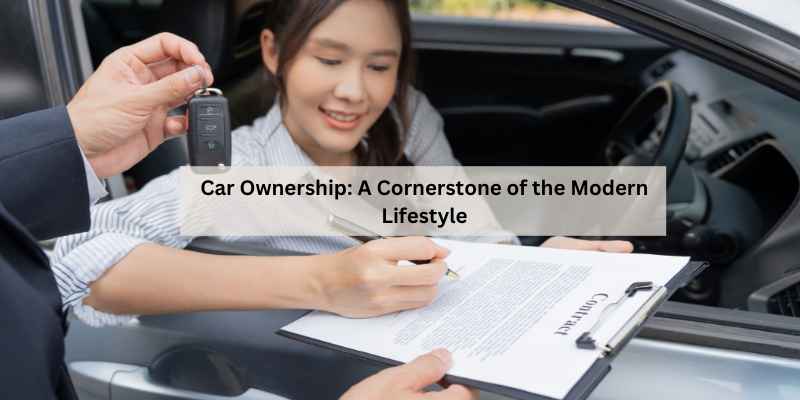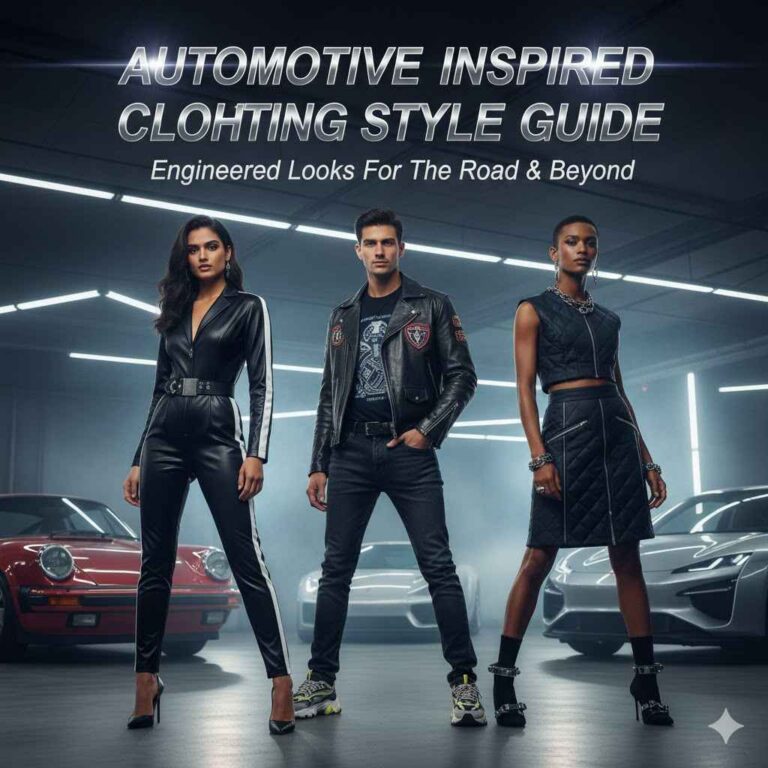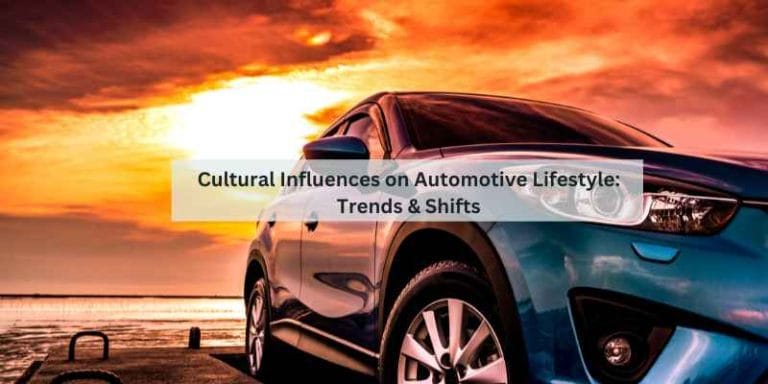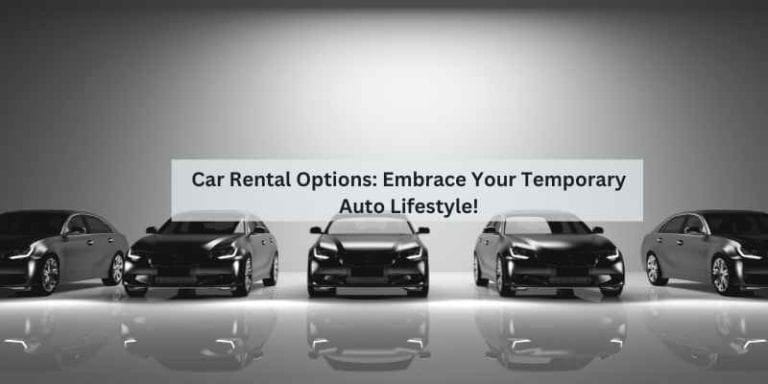Car Ownership: A Cornerstone of the Modern Lifestyle
Car ownership is a cornerstone of modern lifestyle, offering freedom, convenience, and independence in daily transportation needs. Owning a car provides individuals with the flexibility to travel at their convenience, without relying on public transportation or others’ schedules.
This sense of autonomy has reshaped societal norms, encouraging exploration and enabling access to various opportunities and services. From family road trips to commuting to work, the impact of car ownership extends beyond mere transportation, influencing employment distribution, social interactions, and urban development.
As cars continue to play a pivotal role in everyday life, their significance remains deeply ingrained in the fabric of society, reflecting the evolving dynamics of mobility and personal choice.
The Historical Evolution Of Car Ownership
Car ownership has evolved significantly throughout history, becoming a cornerstone of the modern lifestyle. It has provided individuals with unprecedented freedom and mobility, reshaping travel patterns and societal interactions. From enabling family vacations to empowering teenagers with independence, car ownership has had a profound impact on the way we live and experience the world.
The Rise Of The Automobile Industry
Automobile manufacturing introduced the assembly line, revolutionizing production and accessibility.
- Personal freedom and job access expanded with the advent of cars.
- Improved transportation infrastructure and new industries flourished.
Assembly Line Impact On Society
The assembly line method in car production led to widespread societal changes:
- Shift in employment patterns and shopping behaviors.
- Transformation in urban planning and transportation priorities.
Personal Freedom On Wheels
Car ownership has become a cornerstone of the modern lifestyle, providing personal freedom on wheels. With access to jobs, services, and travel flexibility, owning a car has led to the development of better roads, transportation, and new industries. It has encouraged family vacations and allowed teenagers to gain more independence.
The Allure Of The Open Road
Embarking on a journey behind the wheel unlocks a sense of adventure and discovery.
The open road beckons with promises of new experiences and breathtaking landscapes.
Family Vacations Transformed
Car ownership revolutionizes family trips, offering flexibility and spontaneity.
Gone are the constraints of public transport schedules, as families chart their own course.
Economic Impacts Of Automobiles
Car ownership has a profound impact on the economy, influencing various aspects of urban and rural life. The economic implications of automobiles extend far beyond individual ownership, shaping industries and employment opportunities while contributing to urban and rural economic shifts.
Job Creation And Industry Growth
The automotive industry serves as a significant source of employment and economic growth, driving job creation across various sectors. From manufacturing and assembly to sales and service, the demand for automobiles fuels a network of interconnected industries, generating employment opportunities and fostering economic development.
Urban And Rural Economic Shifts
The presence of automobiles has led to notable economic shifts in both urban and rural areas. In urban settings, the automotive industry has spurred infrastructure development, including road networks, parking facilities, and service stations. In rural areas, the accessibility provided by cars has facilitated economic integration with urban centers, enabling residents to access employment opportunities and essential services.
Cars And The Teenage Independence
Teenage independence and the role of cars in shaping it have been a significant aspect of modern lifestyle dynamics. With the advent of driving age, teenagers often view obtaining a driver’s license as a rite of passage, marking their transition into adulthood and newfound freedom.
Driving As A Rite Of Passage
Obtaining a driver’s license is a significant milestone for teenagers, symbolizing their growing independence and ability to navigate the world on their terms. It marks the beginning of their journey towards self-sufficiency and opens up a world of opportunities and experiences.
Social Dynamics Of Youth Mobility
The ability to drive provides teenagers with a sense of autonomy and mobility, allowing them to engage in social activities, part-time employment, and extracurricular pursuits. It fosters a sense of responsibility and self-reliance, enabling them to participate in a wide range of activities and interactions outside the confines of their immediate surroundings.
Infrastructure And Environmental Considerations
Considering infrastructure and environmental factors is crucial in the context of car ownership being a cornerstone of modern living. Sustainable transport systems and eco-friendly practices play a vital role in shaping the future of personal mobility. By integrating green technologies and efficient urban planning, we can ensure a harmonious balance between our lifestyle needs and environmental preservation.
Developing Roads For The Motor Age
The development of roads has been integral to the rise of car ownership. With the advent of the motor age, governments and private entities have invested in building and maintaining a vast network of roads, highways, and bridges to accommodate the increasing number of vehicles.
Environmental Consequences Of Car Culture
The widespread adoption of car culture has led to significant environmental consequences. The combustion of fossil fuels in car engines contributes to air pollution, while the construction and maintenance of roads and highways can lead to habitat destruction and fragmentation. Additionally, the reliance on cars has contributed to urban sprawl, leading to increased vehicle emissions and a decline in air quality in urban areas.
The environmental impact of car ownership extends beyond air pollution. The production and disposal of vehicles also contribute to environmental degradation through the extraction and processing of raw materials, as well as the generation of waste at the end of a vehicle’s lifespan.
In conclusion, the infrastructure and environmental considerations surrounding car ownership highlight the need for sustainable transportation solutions and the promotion of eco-friendly alternatives to mitigate the environmental impact of car culture.
The Societal Fabric Interwoven With Cars
Car ownership has become a cornerstone of modern lifestyle, intricately woven into the societal fabric, impacting various aspects of our daily routines and interactions. The role of cars extends beyond mere transportation, influencing social interactions, shopping behaviors, and living patterns.
Changes In Social Interactions
The advent of cars has revolutionized social interactions, allowing people to connect and engage across wider geographical areas. With the freedom of mobility, individuals can easily meet friends and family, fostering stronger social bonds and expanding their social circles. Additionally, cars have facilitated the growth of road trip culture, enabling people to explore new destinations and create lasting memories with loved ones.
Shopping And Living Patterns
Car ownership has significantly impacted shopping and living patterns, empowering consumers with the ability to access a broader range of amenities and services. The convenience of owning a car has led to the proliferation of suburban living, as individuals seek spacious residential areas while still maintaining access to urban centers. Furthermore, the ease of transporting goods has influenced shopping behaviors, with individuals opting for bulk purchases and larger shopping trips.
Modern Day Challenges And Car Ownership
Car ownership presents modern-day challenges, requiring upkeep costs, traffic congestion struggles, and environmental impact considerations. Despite these hurdles, owning a car remains a cornerstone of the modern lifestyle, providing convenience and mobility essential for daily routines and activities.
Owning a car in the modern world comes with a set of challenges that affect both individuals and society at large. From the financial burden to the evolving car culture in the age of remote work, there are various aspects to consider when it comes to maintaining a car in today’s fast-paced environment.
The Cost Of Owning A Car
The expense of owning a car goes beyond the initial purchase price. Maintenance, insurance, fuel, and parking costs can quickly add up, making car ownership a significant financial commitment for many individuals. It’s essential to budget carefully to ensure that these ongoing expenses do not become overwhelming.
Car Culture In The Age Of Remote Work
The traditional notion of car culture, centered around commuting to the office and weekend road trips, is undergoing a transformation in the age of remote work. Remote work has reduced the need for daily commuting, leading to a shift in how people perceive and utilize their vehicles. Cars are now being used less frequently for work-related travel and more for leisure activities and local errands.
In conclusion, navigating the challenges of modern-day car ownership requires a proactive approach to managing costs and adapting to changing trends in car culture. By staying informed and flexible, individuals can continue to enjoy the convenience and freedom that owning a car provides in today’s dynamic world.
The Future Of Transportation
Car ownership has been a cornerstone of modern lifestyle, offering flexibility and freedom in travel. However, with the advancement of technology, the future of transportation may see a shift towards alternative methods such as ride-sharing and electric vehicles, potentially changing the way we think about car ownership.
Decreasing Dependency On Personal Vehicles
In today’s rapidly evolving world, there is a noticeable shift towards reducing reliance on personal vehicles. Urbanization and environmental concerns are driving this change, leading to a decrease in car ownership.
The Rise Of Digital And Networked Alternatives
Digital and networked transportation solutions are on the rise, offering convenient, efficient, and sustainable alternatives to traditional car ownership. Ride-sharing services, electric scooters, and bike-sharing programs are becoming popular choices for modern commuters.
By embracing these innovative solutions, individuals can contribute to reducing congestion, lowering emissions, and creating a more connected and accessible transportation network for all.

Frequently Asked Questions
How Did Automobile Ownership Change Their Lifestyle?
Automobile ownership revolutionized lifestyles by enabling freedom of choice for travel, empowering urban exploration, and granting teenagers independence. It also spurred the development of better roads, new job opportunities, and impacted employment distribution and societal interactions.
How Did Cars Change The Way Of Life?
Cars changed the way of life by offering personal freedom, enabling travel to new places, and creating job opportunities.
What Are The Benefits Of Car Ownership?
Owning a car provides freedom and flexibility in travel, eliminating reliance on public transport or others’ schedules.
How Have Cars Impacted Society?
Cars have significantly impacted society by increasing mobility, encouraging travel, and shaping urban development and job opportunities. The widespread use of cars has transformed transportation, shopping habits, and social interactions while reducing reliance on traditional modes of travel.
Conclusion
Car ownership is undoubtedly a cornerstone of modern lifestyle, providing freedom and flexibility in travel. The development of the automobile industry has revolutionized the way people commute, travel, and explore new destinations. It has given people the opportunity to rediscover pristine landscapes, shop in towns and cities, and gain independence with driving freedom.
However, with the rise of remote work and virtual services, the cost of car ownership could change the face of modern lifestyle. Despite this, cars have remained a key driver of opportunity for over a century and will continue to shape our society.







